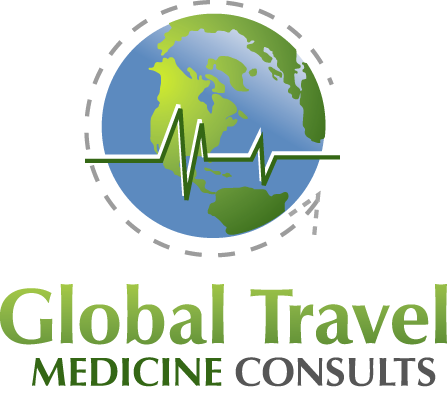Travel Medicine Vaccine and Immunization Information for Countries in Africa
Travel Medicine Immunization and Vaccine requirements in Africa vary. However, there are some General Guidelines for vaccines such as the Yellow Fever Vaccination, Typhoid, Malaria, and other vaccines which are outlined below.
Travel Medicine Information for Africa
Please Click on the Links below for each individual country you will be traveling in within Africa to view the specific travel medicine requirements:
North Africa
East Africa
South Africa
West Africa
Central Africa
General Health Information for Travelers to Countries in North Africa, West, Centeral, East, and South Africa
Recommended Vaccinations and Preventive Medications
The following vaccines may be recommended for your travel to North Africa, West Africa, Central Africa, East Africa and South Africa. Discuss your travel plans and personal health with a health-care provider to determine which vaccines you will need.
* Hepatitis A or immune globulin (IG). Transmission of Hepatitis A virus can occur through direct person-to-person contact; through exposure to contaminated water, ice, or shellfish harvested in contaminated water; or from fruits, vegetables, or other foods that are eaten uncooked and that were contaminated during harvesting or subsequent handling.
* Hepatitis B, especially if you might be exposed to blood or body fluids (for example, health-care workers), have sexual contact with the local population, or be exposed through medical treatment. Hepatitis B vaccine is now recommended for all infants and for children ages 11-12 years who did not receive the series as infants.
* Malaria: your risk of Malaria may be high in some of the countries in the North Africa Region. Your risk of Malaria may be high in all countries in West Africa, Central Africa, East Africa and South Africa including cities. See your health care provider for a prescription antimalarial drug.
* Meningococcal (Meningitis), if you plan to visit countries in the Central and West Africa region that experience epidemics of Meningococcal Disease during December through June.
* Rabies, pre-exposure vaccination, if you might have extensive unprotected outdoor exposure in rural areas, such as might occur during camping, hiking, or bicycling, or engaging in certain occupational activities.
* Typhoid, Typhoid fever can be contracted through contaminated drinking water or food, or by eating food or drinking beverages that have been handled by a person who is infected. Large outbreaks are most often related to fecal contamination of water supplies or foods sold by street vendors.
* Yellow Fever, a viral disease that occurs primarily in Sub-Saharan Africa (West Africa) and Tropical South America, is transmitted to humans through the bite of infected mosquitoes. The virus is also present in Panama and Trinidad and Tobago. Yellow fever vaccination is recommended for travelers to endemic areas and may be required to cross certain international borders. Vaccination should be given 10 days before travel and at 10 year intervals if there is on-going risk.
* As needed, booster doses for Tetanus-Diphtheria, Measles, and a one-time dose of Polio Vaccine for adults.
Required Vaccinations
A certificate of Yellow Fever vaccination may be required for entry into certain countries in Central, West, East and South Africa.
Diseases found in North Africa, West, Central, East and South Africa (risk can vary by country and region within a country; quality of in-country surveillance also varies)
Malaria:
Malaria is always a serious disease and may be a deadly illness. Humans get Malaria from the bite of a mosquito infected with the parasite.
North Africa:
A limited risk of malaria exists in parts of Algeria, Egypt, and Morocco. Taking an antimalarial drug is not recommended as the risk for travelers is considered to be extremely low. However, travelers should use insect repellent with DEET (N, N-diethyl-m-toluamide) to prevent mosquito bites.
West Africa:
Your risk of Malaria may be high in all countries in West Africa, including cities. All travelers to West Africa, including infants, children, and former residents of West Africa, may be at risk for malaria.
Central Africa:
Your risk of malaria may be high in all countries in Central Africa, including cities. All travelers to Central Africa, including infants, children, and former residents of Central Africa, may be at risk for malaria. Prevent this serious disease by seeing your health care provider for a prescription antimalarial drug and by protecting yourself against mosquito bites.
East Africa:
Your risk of malaria may be high in all countries in East Africa, including cities. All travelers to East Africa, including infants, children, and former residents of East Africa, may be at risk for malaria. Prevent this serious disease by seeing your health care provider for a prescription antimalarial drug and by protecting yourself against mosquito bites.
South Africa:
Your risk of malaria may be high in all countries in Southern Africa, including cities. All travelers to Southern Africa, including infants, children, and former residents of Southern Africa, may be at risk for malaria. Prevent this serious disease by seeing your health care provider for a prescription antimalarial drug and by protecting yourself against mosquito bites.
Yellow Fever:
North Africa:
There is no risk for Yellow Fever in North Africa. A certificate of Yellow Fever vaccination may be required for entry into certain of these countries if you are coming from countries in South America or sub-Saharan Africa.
West Africa:
Your risk of Yellow Fever may be high in some countries in West Africa. A certificate of Yellow Fever vaccination may be required for entry into certain countries in West Africa.
Centeral Africa:
A certificate of Yellow Fever vaccination may be required for entry into certain countries in Centeral Africa.
East Africa:
A certificate of Yellow Fever vaccination may be required for entry into certain countries in East Africa. Find the nearest authorized U.S. yellow fever vaccine center for more information.
South Africa:
There is no risk for Yellow Fever in Southern Africa. A certificate of Yellow Fever vaccination may be required for entry into certain of these countries if you are coming from countries in South America or sub-Saharan Africa.
Food and Waterborne Diseases: (All Regions)
Make sure your food and drinking water are safe. Food and waterborne diseases are the primary cause of illness in travelers. Travelers' Diarrhea can be caused by viruses, bacteria, or parasites, which are found throughout North, West, Central, East and South Africa and can contaminate food or water. Infections may cause diarrhea and vomiting (E. Coli, Salmonella, Cholera, and Parasites), fever (Typhoid Fever and Toxoplasmosis), or liver damage (Hepatitis).
Other Disease Risks
North Africa:
Dengue, Filariasis, Leishmaniasis, and Onchocerciasis (River Blindness) are other diseases carried by insects that also occur in this region. Protecting yourself against from insect bites will help to prevent these diseases. Schistosomiasis, a parasitic infection, is found in fresh water in the region, including the Nile River. Do not swim in fresh water (except in well-chlorinated swimming pools) in these countries. (For more information, please see Swimming and Recreational Water Precautions.) Other infections that tend to occur more often in longer-term travelers (or immigrants from the region) include Tuberculosis, Hepatitis B, and Hepatitis C (prevalence > 15% in Egypt). Polio is also still endemic in Egypt.
West Africa:
Dengue, Filariasis, Leishmaniasis, and Onchocerciasis (River Blindness) are other diseases carried by insects that also occur in this region. Endemic foci of river blindness exist in all countries listed except in the greater part of The Gambia, Mauritania. Protecting yourself against insect bites will help to prevent these diseases. The risk for contracting African Sleeping Sickness (Trypanosomiasis), which is caused by the bite of an infected tsetse fly, is high in all countries except The Gambia, Niger, and Mauritania. A number of Rickettsial Infections also occur in this region. Wearing protective clothing and avoiding rural areas or areas of dense vegetation along streams, is the best protection. Plague occurs sporadically or in outbreaks. Schistosomiasis, a parasitic infection, can be contracted in fresh water in this region. Do not swim in fresh water (except in well-chlorinated swimming pools) in these countries. (For more information, please see Swimming and Recreational Water Precautions.) Polio is still endemic in Nigeria. Other infections that tend to occur more often in longer-term travelers (or immigrants from the region) include Tuberculosis, HIV and Hepatitis B.
Centeral Africa:
Dengue, Filariasis, Leishmaniasis, and Onchocerciasis (River Blindness) are other diseases carried by insects that also occur in this region. Protecting yourself against insect bites will help to prevent these diseases. The risk for contracting African Sleeping Sickness (Trypanosomiasis), which is caused by the bite of an infected tsetse fly, is high in northern Angola, Central African Republic, Cameroon, Chad, Congo, Democratic Republic of the Congo, and southern Sudan and there is significant risk of infection for travelers visiting or working in rural areas. Plague, an infectious disease of animals and humans caused by a bacterium, is present in wild rodent populations in rural areas of Africa. Ituri District in the Democratic Republic of the Congo is known to be one of the most active areas for plague worldwide. People usually get plague from being bitten by an infected rodent flea. Generally, the risk of plague infection for travelers is low, especially for persons staying in hotels in cities. A number of Rickettsial Infections also occur in this region. Wearing protective clothing and avoiding rural areas or areas of dense vegetation along streams, is the best protection. Schistosomiasis, a parasitic infection, can be contracted in fresh water in this region. Do not swim in fresh water (except in well-chlorinated swimming pools) in these countries. Other infections that tend to occur more often in longer-term travelers (or immigrants from the region) include Tuberculosis, HIV and Hepatitis B.
East Africa:
Dengue, Filariasis, Leishmaniasis, Onchocerciasis (River Blindness) and Rift Valley Fever are other diseases carried by insects that also occur in this region. Protecting yourself against insect bites will help to prevent these diseases. African Sleeping Sickness (African Trypanosomiasis), which is transmitted through the bite of an infected tsetse fly, can be found in distinct areas of East Africa except Djibouti, Eritrea, Somalia, and the island countries of the Atlantic and Indian Oceans. The number of cases of African sleeping sickness in travelers, primarily to East African game parks, has increased in recent years. A number of Rickettsial Infections also occur in this region. Wearing protective clothing and avoiding rural areas or areas of dense vegetation along streams, is the best protection. Schistosomiasis, a parasitic infection, is found in fresh water in the region, including Lake Malawi. Do not swim in fresh water (except in well-chlorinated swimming pools) in these countries. Polio has also resurfaced in Ethiopia since 2003. Other infections that tend to occur more often in longer-term travelers (or immigrants from the region) include Tuberculosis, HIV and Hepatitis B.
South Africa:
Dengue, Filariasis, Leishmaniasis, Onchocerciasis (River Blindness), and Trypanosomiasis (Sleeping Sickness) are other diseases carried by insects that also occur in this region, mostly in rural areas. Protecting yourself against insect bites will help to prevent these diseases (DEET). African Tick Bite Fever, a rickettsial infection, is common in South Africa, Botswana, Swaziland, Lesotho, and Zimbabwe. African Sleeping Sickness can occur in Botswana and Namibia. Wearing protective clothing and avoiding rural areas or areas of dense vegetation along streams, is the best protection. Schistosomiasis, a parasitic infection, is found in fresh water in this region, particularly in Botswana, Namibia, South Africa, and Swaziland. Do not swim in fresh water (except in well-chlorinated swimming pools) in Southern African countries.
About Us:
We are Travel Medicine Board Certified Physicians and Doctors. We provide: Yellow Fever, Typhoid, Hepatitis A, Hepatitis B, Diphteria, Tetanus, Pertussis, Meningitis, Hemophilus B, Rabies, Japanese Encephalitis Virus, Mumps Measles and Rubella (MMR), HPV (Gardasil), Rota Virus, Varicella, Polio and Influenza Vaccines to Residents of Washington DC, Maryland and Virginia.
Our Vaccines Clinic is located in the Washington DC Metro area.





